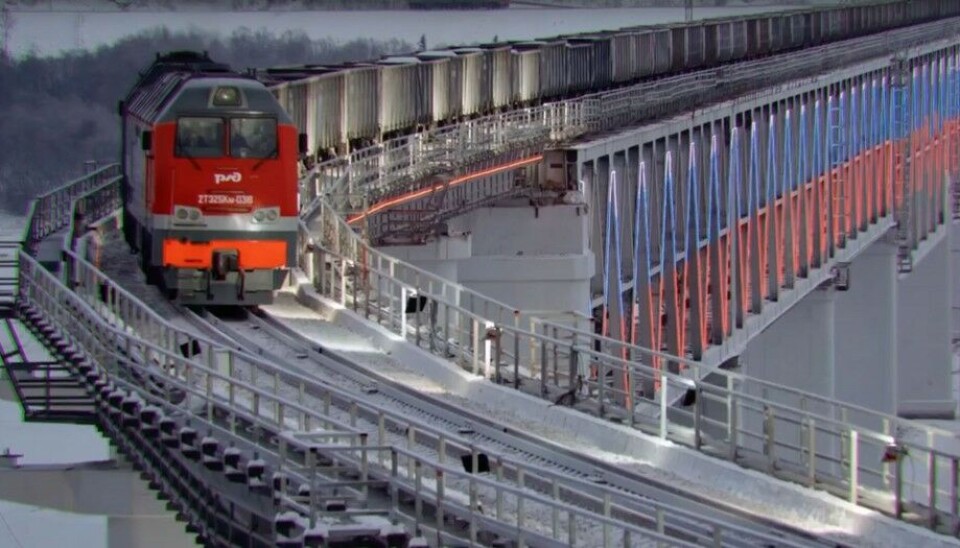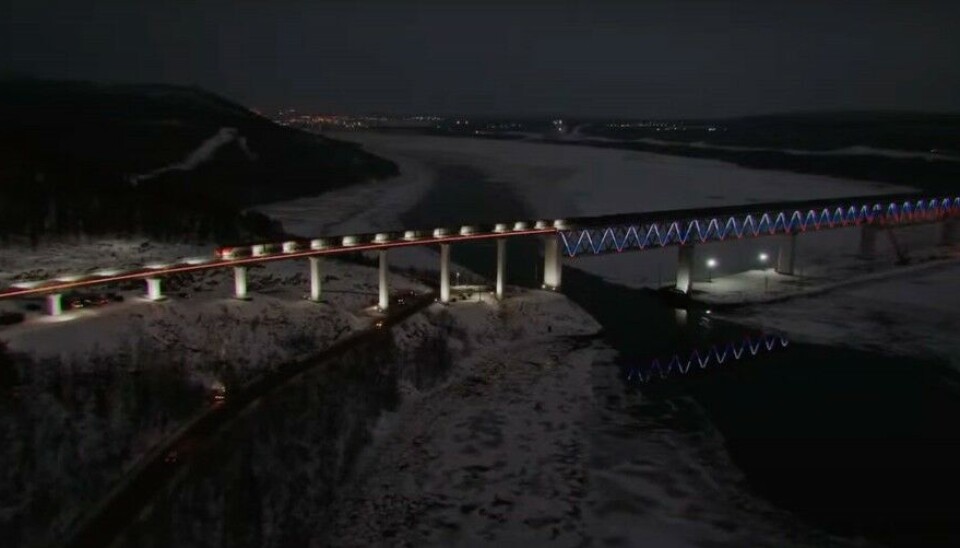
First train crosses new bridge to western side of Kola Bay
It is a historical moment for Murmansk, regional governor Andrei Chibis underlined as Vladimir Putin declared the new infrastructure object for opened.
The more than 1300 meter long bridge is key component of the new railway line to Lavna, the seaport terminal on the western shore of the Kola Bay.
On the 15th of December, the bridge was officially launched by Putin during the Russian national Railway Congress. In a speech, Putin highlighted the importance of the new railway, saying it would become key element in a new “Arctic hub” that ultimately will be connected with the Persian Gulf.
“Along the whole distance from Murmansk to the Iranian Bander-Abbas will, according to our specialists, be a seamless railway line based on the 1520 wide track standard [and] goods deliveries from Murmansk to Mumbai will take about 15 days which is four times less than the traditional routes,” he said.
As the president was speaking, a video showed how a several hundred meter long train was moving across the Tuloma River.
Ultimately, the train will be able to move all the way to Lavna where a major new logistical hub is under development.
The railway line will be 46 km long. It is built by Yamaltransstroy, the company that earlier built several major railway projects, among them the far northern line to Bovanenkovo in the Yamal Peninsula.
The railway line is part of the so-called Murmansk Transport Hub, a major infrastructure project that has been promoted in Murmansk for more than ten years.

The project appeared to have come to halt in 2020, but was given new life following Russia’s full-scale onslaught on Ukraine in 2022.
In a meeting with the federal Government in July 2022, Putin underlined that the construction works must be given priority.
Everything necessary must be done to complete the Murmansk Transport Hub project as soon as possible, Putin instructed the government.
In the meeting was also Secretary of the Security Council, Nikolai Patrushev, who told Putin that the Baltic Sea “turns into an inland sea for NATO as Finland and Sweden join NATO.
Patrushev argued that the importance of Murmansk now will be just as it was “in the years of the Great Patriotic War” (Second World War).















